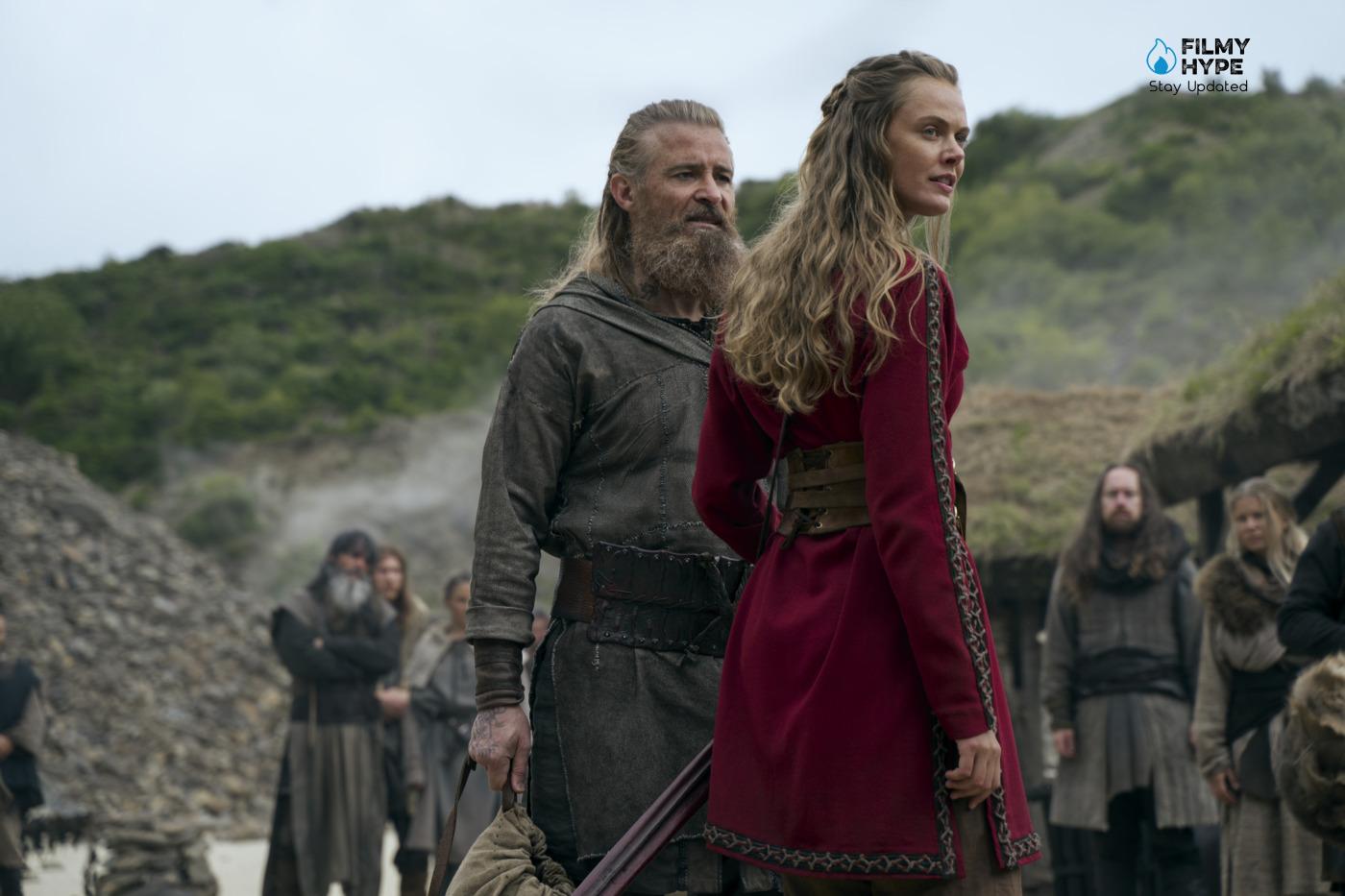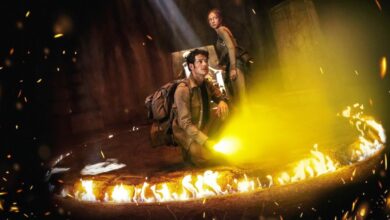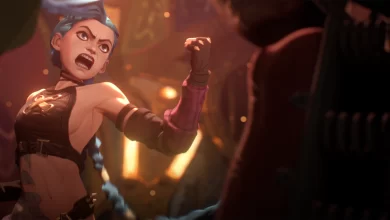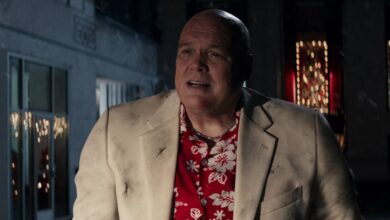Vikings: Valhalla Season 3 Ending Explained: The Fate of King Canute and England?
On Netflix from July 11, 2024, with the eight episodes Vikings: Valhalla Season 3 kept us company 2022 to 2024 telling us the deeds of real Norse characters: Leif Erikson, Freydís Eiríksdóttir and Harald Sigurdsson played, respectively, by Sam Corlett, Frida Gustavsson, and Leo Suter. A spin-off of Vikings, the series was created by Jeb Stuart and Michael Hirst who had the idea of setting the plot about a century after the story told in the mother series (produced for six seasons from 2013 to 2020). In Vikings, we experienced the adventures of the Vikings and the Saxons, especially the legendary Ragnar Lothbrok (Travis Fimmel) and the shield maiden Lagertha (Katheryn Winnick) with their sons Ivar (Alex Høgh Andersen), Björn (Alexander Ludwig), Ubbe (Jordan Patrick Smith) and Hvitserk (Marco Ilsø). The aim of Vikings: Valhalla, instead, was to take us by the hand towards the end of the Viking Age, placed by historians in 1066 with the Battle of Stamford Bridge. We were therefore shown the contrasts between the Vikings – now increasingly Christian and less pagan – but the cancellation put an end to the adventures of Leif, Freydís, and Harald.

The famous Netflix series “Vikings: Valhalla” was born as an ambitious spin-off of the acclaimed “Vikings”, introducing us to a new generation of heroes and kings who gave themselves over to their destiny in a society divided between old gods and a new religion. Thus, throughout three seasons, the show delighted us with its dose of action, drama and adventure, closing its story – definitively – on July 11, 2024. In that sense, if you have already enjoyed its last episode, you may have some doubts about its outcome. Therefore, in the following lines, I present to you its ending explained. Pay attention! It is worth noting that season 3 of the show takes place seven years after the conclusion of the previous season. Thus, we find Freydis as the undisputed leader of Jomsborg and Leif and Harald, enshrined in Constantinople. However, before taking their glorious place in history, they still have to face great challenges. Thus, in the episode titled “Destinies” we see that Magnus and Harald compete to be King of Norway and, without knowing it, Leif and Freydis return to Kattegat.
Vikings: Valhalla Season 3 Ending Explained: Plot Summary
Vikings: Valhalla Season 3 picks up where we left off. Harald Hardrada (Leo Suter) continues his rise to power as commander at the court of the Byzantine Emperor Roman III Argyros (Nikolai Kinski), to whom his beloved Zoe (Sofya Lebedeva) has been given as a wife, but he has to deal with the jealousy of General George Maniaces (Florian Munteanu). Together with Leif Erikson (Sam Corlett), he covers himself in glory, fighting in Sicily against the Saracens, but Leif soon begins to want to leave again to discover other seas, and other people, to see what lies beyond the horizon. Meanwhile, Canute the Great (Bradley Freegard) and Queen Emma of Normandy (Laura Berlin), went to Rome, to the Pope’s court, to try to reconnect after countless monasteries in England had been completely destroyed and razed. For the royal couple, the future is uncertain also due to the difficulty of finding a worthy heir among the new children and those of Emma’s previous marriage to Ethelred II.
Uncertainty is also increased by the plots hatched by their advisor Godwin (David Oakes), always looking for a glimmer of hope for his gain. Meanwhile, Freydís Eiríksdóttir (Frida Gustavsson) must defend her settlement from the raids of the sons of the evil Olaf, who she finally kills at the end of the second season. On her way, her father, the legendary Erik the Red (Goran Višnjić), will return to life, exiled for crimes in Greenland which will be just one of the many lands touched also in this last act by the Viking drakkars in their epic. Vikings: Valhalla Season 3 when it came out, promised to continue the path of that Vikings, which started quietly in 2013, then bewitched the world with wise writing and an excellent cast, capable of bringing back to life the men and women who in the ninth century, made the Vikings protagonists of European history.
If after the departure of the iconic Ragnak by Travis Fimmel, the series had gradually waned until the epilogue in 2020, it is not that Vikings: Valhalla has ever given the impression of being able to satisfactorily collect the legacy, nor of having the ability to create anything exciting. The truth is that Vikings: Valhalla has always been a sort of younger brother. Not because there was a lack of material on which to create a convincing narrative, indeed, if possible, the historical facts of the eleventh century and its protagonists were theoretically far superior to the era of Ragnar Lothbrok.
However, the right atmosphere has always been missing, also a question of budget, of style, of a search for an excessively glossy and neutral tone, devoid of that greater depth, that desire to fully embrace the Norse worldview with their myths, superstitions, contradictions, and cruelty, which made Vikings an absolutely unique series in its genre. Here, everything sometimes seems to veer much more towards The Last Kingdom, another medieval product from Netflix, absolutely honest, which ended last year. But even in this case, between the original and the derived hybrid product, the first always wins anyway. Also, the fault of a cast that, poorly supported by the writing, far too fragmented, has never objectively been up to the level of Travis Fimmel and co. In this, Vikings: Valhalla Season 3 is a confirmation, although the whole thing naturally turns out to be acceptable, and pleasant at times, even if visually it is often clearly a B-series product.
Vikings: Valhalla Season 3 Ending Explained: The Fate of King Canute and England?
Set primarily between Kattegat and England in the early 11th century AD, the series finale of Vikings: Valhalla seeks to wrap up – albeit hastily – the main characters’ stories, inevitably leaving some narrative threads without a real conclusion. After visiting the Vatican to make a pact with the Pope, King Canute’s (Bradley Freegard) health conditions worsen, and the sovereign, knowing that he has little time left to live, calls all his children to decide who will rule after his death: surprisingly, Emma is chosen, while the children are sent to take care of other territories. In the end, Canute dies in England next to his Emma of Normandy (Laura Berlin) but, upon his death, the sovereign asks that her son Edward be crowned. Contrary to what was planned; however, Godwin (David Oakes) has Harold – and not Edward – called to be crowned, and Emma – in order not to lose the throne – decides to seduce Harold (even though he is her stepson).
In the finale of Vikings: Valhalla Season 3, King Canute is given two funerals: one with a Christian rite and the other according to the Viking rite. Canute was a Christian, in addition to being the first Viking King of England. In the series, honoring her husband’s Viking origins, we see Emma grant him a second funeral – this time private – and the King’s body burned on a Viking ship. In reality, there is no historical evidence that Canute the Great received a pagan funeral: we know that he was buried in the Old Minster in Winchester.
The Journey of Leif and Freydis?
An explorer and lover of knowledge, Leif is – without a doubt – the most interesting character in Vikings: Valhalla. Determined to find the Golden Land – after having been among the beauties of Sicily, Constantinople, and Greece – at the end of the series, Leif sets out on a journey together with his sister Freydís who, instead, is looking for a new home for her people. Leif was supposed to discover North America – the Golden Land that is spoken of – but the premature end of the Viking’s sequel does not allow us to witness the discovery. According to history, it was the real Leif who was the first European to land in America (well before Christopher Columbus). For her part, Freydís – who had become chief of Jomsborg and is raising Harald, son of Harald Sigurdsson – is forced to look for a new land to live in, after the attack suffered by the Christians and the son of Olaf Haraldsson (Jóhannes Haukur Jóhannesson), Magnus (Stefán Haukur Jóhannesson).
Harald III of Norway?
In the third and final season of Vikings: Valhalla, we find Harald fighting – alongside Leif – for the Byzantine Emperor Romanos III Argyros (Nikolai Kinski). Harald’s desire has always been to take what was rightfully his: the throne of Norway, and so it was. After many obstacles, living for seven years in Constantinople and being framed for the Emperor’s murder, Harald achieves his goal by claiming the throne of Norway. However, his nephew Magnus also wants the throne. Both are chosen to rule, but Harald manages to have him imprisoned and become the sole King of Norway. In reality, Harald III of Norway was killed during the Battle of Stamford Bridge, which is considered the end of the Viking Age. Although the title (Valhalla) gave us hope of seeing it, the story of Vikings ends here.
What Does The End Of Vikings: Valhalla Mean?
During Magnus and Harald’s coronation, Magnus encourages the crowd to set fire to Freydis. However, despite her disadvantage, she defies him and calls upon the gods… distracting the crowd with her speech. Leif immediately wreaks havoc with a gun and sets Kattegat ablaze, making it clear that there’s nothing he won’t do to save his sister. As such, the woman is rescued, but she’s not allowed to kill the villain. Later, our three protagonists discuss their next steps, establishing Harald‘s grand plans for the future and the promise to go see his son “someday “
The trio do meet outside of town for the last time before going their separate ways, and as creator, Jeb Stuart tells Netflix, “As they come together, they realize they experienced something very special when they were together at the time they were”.
Harald then orders his guards to lock Magnus in a cell, vowing to make his kingdom the most powerful on Earth and proclaiming himself Harald Hardrada, King of Norway. “Vikings: Valhalla” ends with Leif and Freydis heading off in search of the golden land of North America. So, even though it’s the end of the series, it seems like the franchise could continue to expand, considering we also saw Emma get “too friendly” with her stepson Harold Harefoot.





